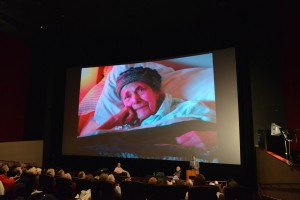It’s About Choice Activists and leaders gather in Chicago to discuss end-of-life issues

“It’s about choice and I want to have it, exclaimed Carolyn Almen, who was attending the World Federation of Right to Die Societies conference in Chicago in September. Almen joined the right-to-die movement years ago and stated: “I decide when and how I want to die. As a society we make sure we take such good care of our animals so they can die peacefully, quickly, and in our arms. What about humans?”
Hosted by the Final Exit Network, the conference took place September 17-21 in the heart of Chicago, with a focus on end-of-life issues such as dignity, control, and choice. This year’s 20th Biennial conference sold out quickly with over 300 leaders, activists, and attendees from over twenty-eight countries sharing ideas on how to grow and strengthen the worldwide death with dignity movement. The World Federation, founded in 1980, consists of fifty-four right-to-die organizations from over twenty-six countries.

The World Federation of Right to Die Societies conference in Chicago.
Currently, aid-in-dying laws exist in the Netherlands, Belgium, Luxembourg, and Switzerland, with a groundbreaking law recently passed in Québec. In the United States, physician-assisted death is currently legal in Oregon, Montana, Vermont, and Washington State, with hopes of more laws passing throughout the country in the coming year.
On June 5, Québec became the first province of Canada to pass “An Act Respecting End of Life Care” by an overwhelming 94 to 22 vote. This groundbreaking law establishes a basic human right to compassionate care at the end of life, including continuous palliative sedation and medical aid in dying. Véronique Hivon, the Minister of the National Assembly in Quebec who introduced the bill, was one of the highlighted speakers in Chicago and told the audience: “There was such a strong public will to see improvements in end-of-life care in Québec, the whole society was behind it which gave incredible strength to the movement.”
Just this week in the United States, the story of twenty-nine-year old Brittany Maynard has brought the issue to national attention. Diagnosed in January with brain cancer, Maynard went through surgery only to find out the cancer had progressed to stage four and that she had only months to live. Knowing that the progression of the disease would cause untold pain and suffering to herself and to her loved ones witnessing it, Maynard and her husband made the decision to move to Oregon to take advantage of its Death with Dignity Act. She now has the medication to end her life and has announced plans to do so on November 1, surrounded by her family and a close friend.
So where do humanists stand on this issue? According to Ed Gogol, a member of the American Humanist Association and the president of Hemlock of Illinois (an independent affiliate of the Final Exit Network), “There are those who favor physicians as the gatekeepers to a hastened death like the Oregon-style law, which states that two physicians must concur that you can reasonably be expected to die within six months.” Ultimately, Gogol doesn’t think this law goes far enough. “A mentally competent adult, incurably ill and suffering intolerably should have the right to choose to hasten their death. It is ethically the highest form of compassion to help a person with intolerable suffering to exit this life.”
Final Exit Network’s Senior Medical Director Richard MacDonald, MD, stated, “Although many doctors accepted that it was okay to have some 85 percent of their patients die a medicalized death in a medical facility, I found that to be against what patients had told me they wished for. They wanted to die at home, with family and loved ones around.”
Although the right to die movement is receiving increased attention and support worldwide, the movement has many opponents in the medical field, the religious sphere, and others whose concern about sick people being coerced overrides a person’s right to choose their final exit.
